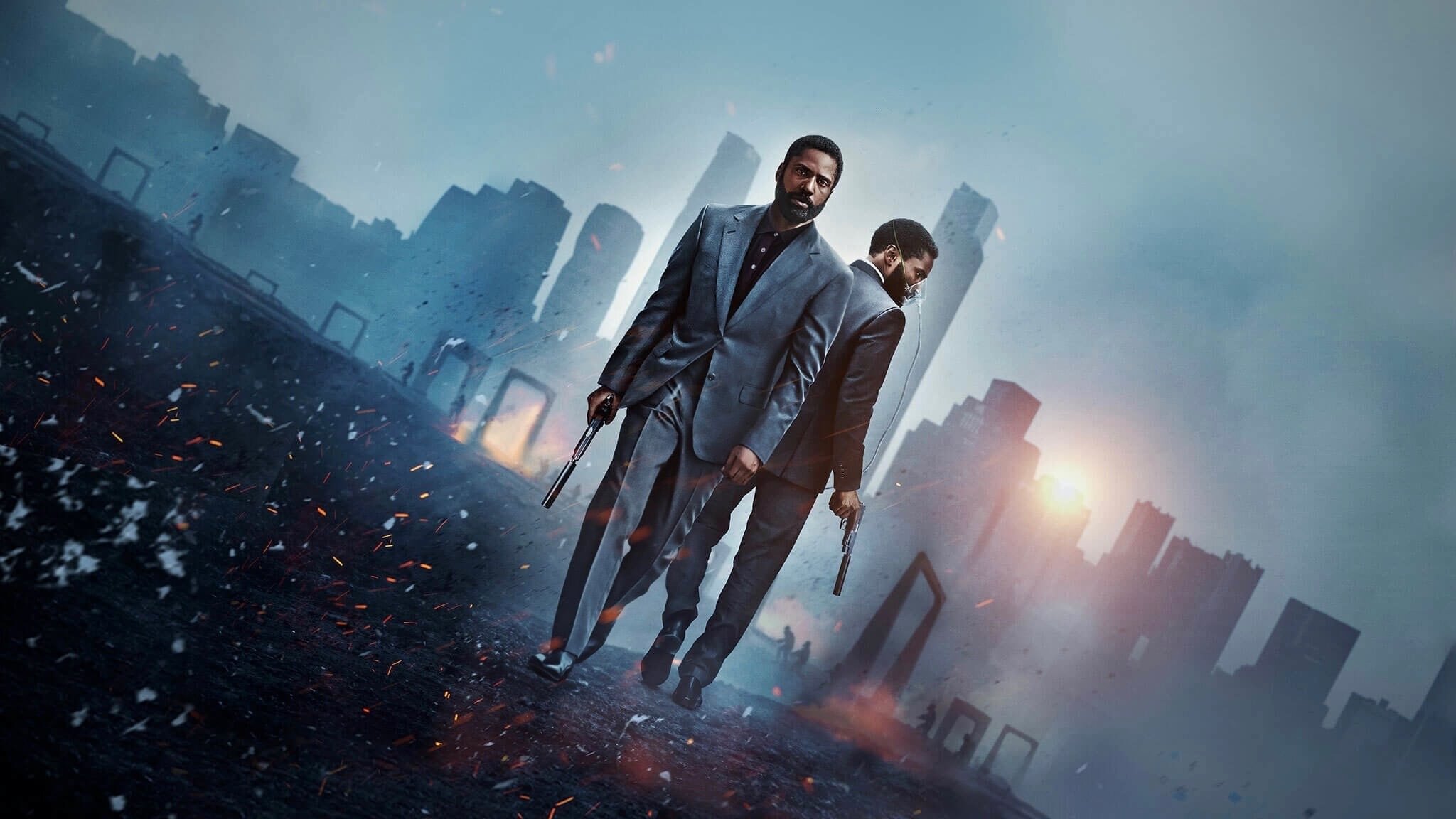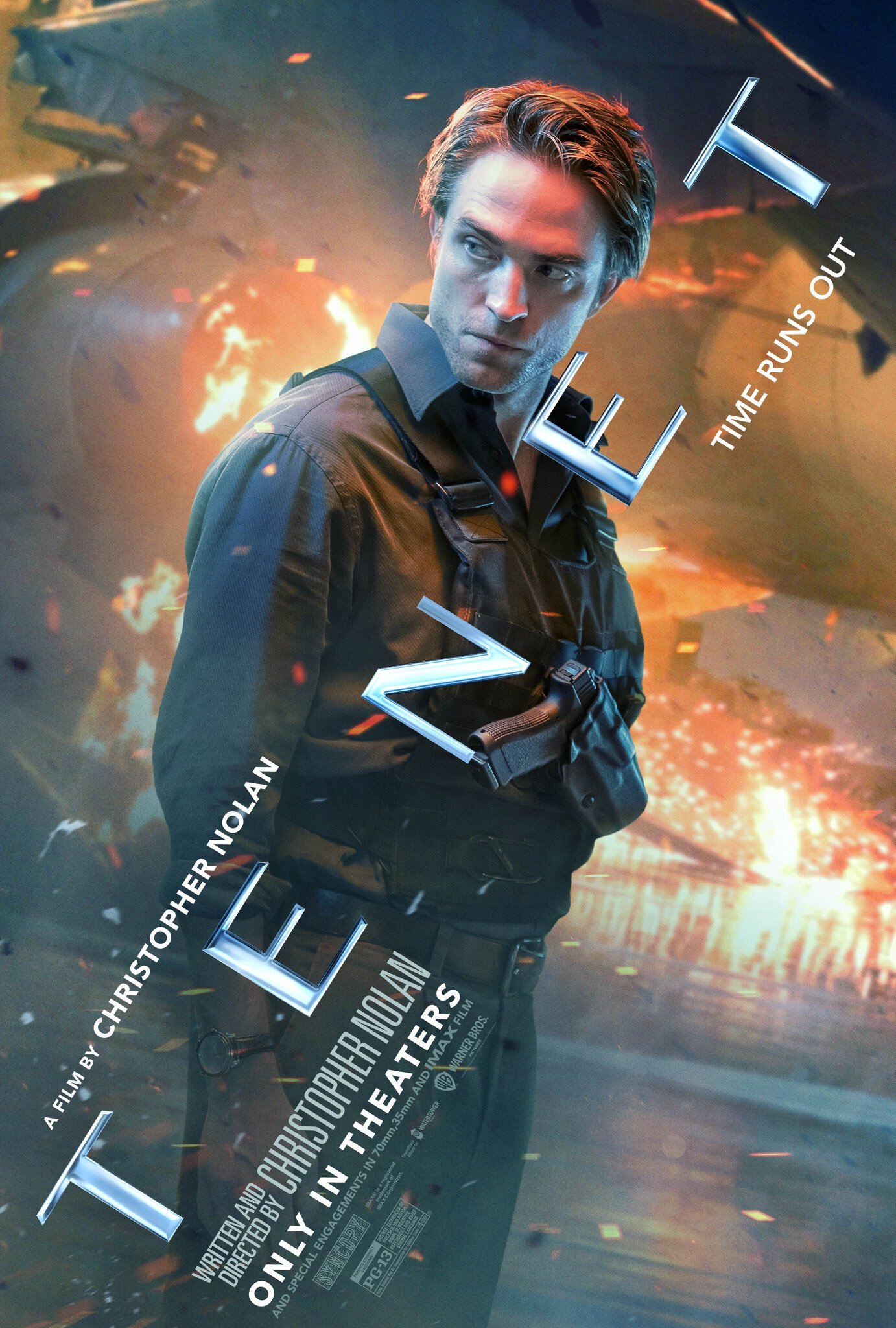‘Tenet’ Review: Christopher Nolan’s Latest Mind-Bender Will Confuse and Thrill In Equal Measure
John David Washington’s Pseudo 007 Commands this Bond-like spy film laced with psychedelics.
“Don’t try to understand it, feel it,” says Clemence Poesy’s Laura during the first act. In many ways, it’s writer-director Christopher Nolan’s thesis statement which he’s gleefully delivering to the audience early on. There’s a sense he knows how much of a labyrinthine experience this will be for all. After watching “Tenet,” I’m not sure how Christopher Nolan’s brain truly functions. Is it on a different wavelength to everyone else’s? I’m not sure, but he’s taken his love of testing his audience with time-bending puzzles to the next level—a level I didn’t even expect Nolan to reach…for better or worse.
There’s always a shroud of secrecy surrounding every one of the iconic director’s projects, and “Tenet” may be the most mysterious of them all. Giving an explanation of “Tenet’s” story could just about send someone into a frenzy. We’re introduced to a CIA agent known only as The Protagonist (John David Washington) in a spectacular opening set-piece at an opera house in Kyiv. The Protagonist is quickly introduced to the concept of ‘inversion’, where an object or person’s entropy is reversed. Again, don’t try to understand it! He’s recruited on a mission to learn more about Russian oligarch Andrei Sator’s (Kenneth Branagh) plan to start World War III. Along the way, he teams up Neil (Robert Pattinson)—an agent shrouded in mystery who has been recruited by an unknown asset—and Sator’s estranged wife Kat (Elizabeth Debicki).
In a culture where spoilers are shared around the internet at will, “Tenet” feels like a film which is specifically designed to be so cerebral and mind-bending that no spoiler can accurately give away what Nolan is trying to deliver from a story or visual perspective. If you thought dreams within dreams and time as a physical construct were out-there concepts for Nolan to tackle, he’s upped the ante in terms of sheer mind-altering grandiosity. Honestly, he may have stretched himself that little bit too far for the first time.
A common criticism of Nolan’s films is that they feel cold and heartless. It’s a criticism I almost always reject in every way. Even something as harrowing as “Dunkirk” swells beautifully into a climax celebrating the strength of the human spirit. “Interstellar’s” final moments tenderly encapsulate the entire crux of the film—a loving relationship between a father and daughter. “Inception” gives us Dom Cobb finally achieving what he always wanted—to see his children. Saying there’s no heart in these moments is a stretch. However, “Tenet” is the first Nolan film since “Insomnia” which didn’t move me deeply on an emotional level. Only one moment during the third act even tries to reach a level of true emotional potency, which it doesn’t really hit due to how confusing the mechanics of the scene are.
Another one of Nolan’s other major criticisms is that his works contain an abundance of exposition. In one way, Nolan forgoing dialogue for pure visual spectacle in “Dunkirk” is why many—including myself—consider it his magnum opus. On the other hand, “Inception” is a near-perfect action film where its detailed exposition is what helps enhance the giddy fun of the premise. “Tenet” is Nolan’s most exposition-laden film to date without a doubt. Whereas “Inception” and occasionally “Interstellar” tried to explain their concepts in layman’s terms, “Tenet’s” exposition is Nolan at his most labyrinthine and complex. There are at least three characters who are in one scene only solely to deliver exposition and never return—Michael Caine, portraying a character hilariously referred to by The Protagonist as Sir Michael, is one of these characters. The sheer complexity of the dialogue is also not helped by a problem that has plagued Nolan’s films in the past—poor sound mixing. Scenes with complex dialogue often feel buried in the mix under composer Ludwig Goransson’s pulsating synth-heavy score. In a film where the exposition populates most of it, that can be a real problem.
As Nolan has freely admitted in the past, he’s an aficionado of Bond films and has been inspired by them both on a story level and visually in his past films. In particular the “On Her Majesty’s Secret Service” inspired snow fortress set piece from “Inception.” Nolan is someone who takes genres and weaves in his love for complex time-bending mechanics. “Tenet” is his play at a Bond-like spy film laced with psychedelics. In true Bond fashion, there’s a myriad of exotic locations, some of the most dapper clothing I’ve seen on screen in recent memory and beautiful shots of boats and catamarans whistling across the screen. You can’t have a spy film without luxurious vessels, right?
John David Washington is very much doing a riff on 007. More so than other Nolan films, there are a few witty one-liners which wouldn’t feel out of place in a Bond film. Washington’s charisma is absolutely effortless. Branagh’s villain Sator could feel at home in any one of Bond’s eras. He’s an interesting antagonist, but one who didn’t fully reach his potential on first viewing. Debicki’s character just manages to eclipse being a damsel in distress. For a 007 homage, she’s not your usual spy movie leading lady—in a good way. If everything is right in this world, Debicki will continue to ascend to the A-list. Pattinson combines seriousness with a level of dry wit, making Neil a more interesting character than he is on the page.
Nolan is an action filmmaker first and foremost. This is his clearest example of such. There are heists, reverse bungee jumps, ticking clocks, car chases, exploding buildings (but not in the way you expect), and fisticuffs throughout the whole film. It’s an assault on the senses with sizzling landscapes and crazy mechanics. If its intellectual grasp is admittedly too high, Nolan distracts with efficient and inventive set pieces. I’m not sure whether people will come out identifying a signature set piece like “Inception’s” hallway fight, but there are moments where I was trying to comprehend how scenes were constructed. It’s ironic that just like “Inception,” a hallway fight absolutely steals the show once again. The grandiose single-location third act had my jaw to the floor, even if I was trying to grasp what was actually happening. That sums up “Tenet” in a nutshell. The craft and spectacle is there, even if the story is convoluted to no end.
I’ve deliberately strayed away from the elephant in the room—the state of the world. I implore everyone, do not see this if it is not safe to. If you’re lucky enough to live in a city where the threat of COVID-19 is almost non-existent, support this film, especially in a year where cinemas have struggled. “Tenet” may not be in the upper echelon of Nolan’s filmography, but no one is creating mind-altering blockbuster entertainment like he is. And don’t be surprised if you have an urge to buy a suit after!




